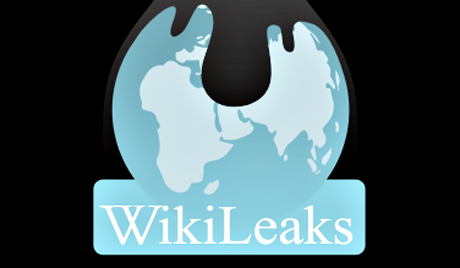
This weekend, WikiLeaks started publishing The Saudi Cables: This latest batch reportedly includes more than half a million documents from the Saudi Foreign Ministry that contain secret communications from various Saudi Embassies around the world. The publication includes "Top Secret" reports from other Saudi State institutions, including the Ministry of Interior and the Kingdom's General Intelligence Services. The massive cache of data also contains a large number of email communications between the Ministry of Foreign Affairs and foreign entities. The Saudi Cables are being published in tranches of tens of thousands of documents at a time over the coming weeks. Today WikiLeaks is releasing around 70,000 documents from the trove as the first tranche.
Julian Assange, WikiLeaks publisher, said: "The Saudi Cables lift the lid on a increasingly erratic and secretive dictatorship that has not only celebrated its 100th beheading this year, but which has also become a menace to its neighbours and itself."
The Kingdom of Saudi Arabia is a hereditary dictatorship bordering the Persian Gulf. Despite the Kingdom's infamous human rights record, Saudi Arabia remains a top-tier ally of the United States and the United Kingdom in the Middle East, largely owing to its globally unrivaled oil reserves. The Kingdom frequently tops the list of oil-producing countries, which has given the Kingdom disproportionate influence in international affairs. Each year it pushes billions of dollars into the pockets of UK banks and US arms companies. Last year it became the largest arms importer in the world, eclipsing China, India and the combined countries of Western Europe. The Kingdom has since the 1960s played a major role in the Organization of Petroleum Exporting Countries (OPEC) and the Cooperation Council for the Arab States of the Gulf (GCC) and dominates the global Islamic charity market.
For 40 years the Kingdom's Ministry of Foreign Affairs was headed by one man: Saud al Faisal bin Abdulaziz, a member of the Saudi royal family, and the world's longest-serving foreign minister. The end of Saud al Faisal's tenure, which began in 1975, coincided with the royal succession upon the death of King Abdullah in January 2015. Saud al Faisal's tenure over the Ministry covered its handling of key events and issues in the foreign relations of Saudi Arabia, from the fall of the Shah and the second Oil Crisis to the September 11 attacks and its ongoing proxy war against Iran. The Saudi Cables provide key insights into the Kingdom's operations and how it has managed its alliances and consolidated its position as a regional Middle East superpower, including through bribing and co-opting key individuals and institutions. The cables also illustrate the highly centralised bureaucratic structure of the Kingdom, where even the most minute issues are addressed by the most senior officials.
Since late March 2015 the Kingdom of Saudi Arabia has been involved in a war in neighboring Yemen. The Saudi Foreign Ministry in May 2015 admitted to a breach of its computer networks. Responsibility for the breach was attributed to a group calling itself the Yemeni Cyber Army. The group subsequently released a number of valuable "sample" document sets from the breach on file-sharing sites, which then fell under censorship attacks. The full WikiLeaks trove comprises thousands of times the number of documents and includes hundreds of thousands of pages of scanned images of Arabic text. In a major journalistic research effort, WikiLeaks has extracted the text from these images and placed them into our searchable database. The trove also includes tens of thousands of text files and spreadsheets as well as email messages, which have been made searchable through the WikiLeaks search engine.
By coincidence, the Saudi Cables release also marks two other events. Today marks three years since WikiLeaks founder Julian Assange entered the Ecuadorian Embassy in London seeking asylum from US persecution, having been held for almost five years without charge in the United Kingdom. Also today Google revealed that it had been been forced to hand over more data to the US government in order to assist the prosecution of WikiLeaks staff under US espionage charges arising from our publication of US diplomatic cables.
WikiLeaks
‘Saudi Cables release is just one tenth of what we have’ – WikiLeaks to RT — RT News http://rt.com/news/268948-wikileaks-saudi-documents-new/#.VYlKJejDBh4.t…
Cables Released by WikiLeaks Reveal Saudis’ Checkbook Diplomacy http://nyti.ms/1SzIgFX